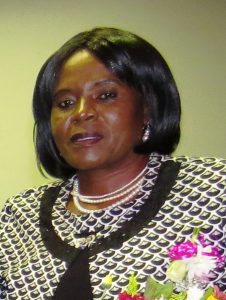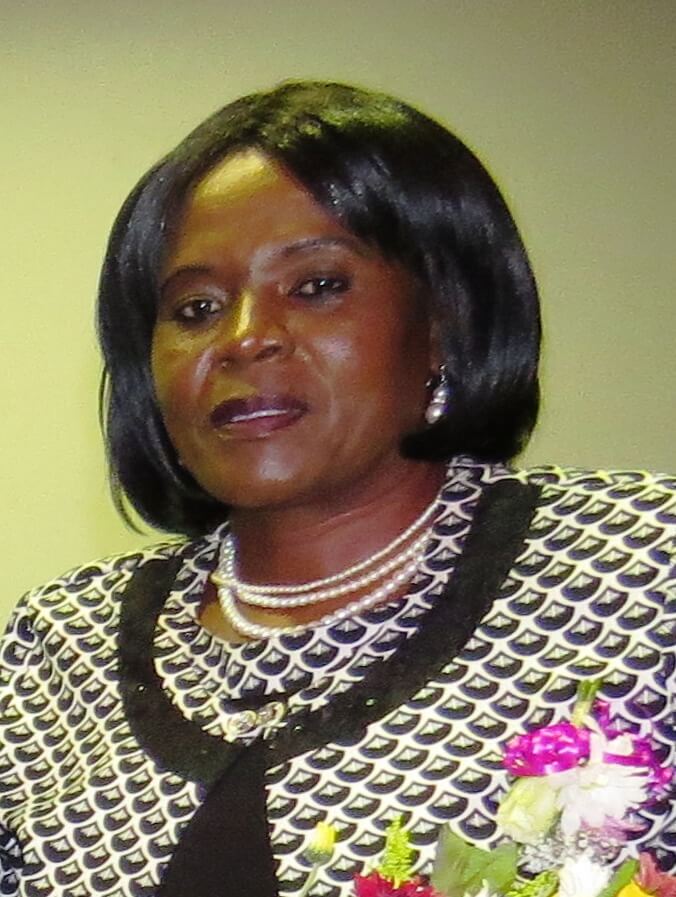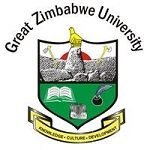Julius Nyerere School of Social Sciences
Nehanda Centre For Gender And Cultural Studies
Director’s Welcome Note

Director: Dr E.F. Zvobgo
Welcome to the Nehanda Centre for Gender and Cultural Studies at Great Zimbabwe University. The Centre was established in January 2015 under the Julius Nyerere School of Social Sciences. As a proponent for gender justice, the Centre strives to be a global centre of excellence in Gender and Cultural Studies. The Centre is anchored on the core values of Ubuntu/Hunhu (which means upholding human dignity), inclusiveness, innovation and creativity. This is in line with the University niche of restoration and preservation of culture. The Centre endeavours to transform unequal gender relations that are prevalent in society today. Both males and females are empowered with knowledge and skills they utilize in social transformation. The Nehanda Centre puts emphasis on five key pillars which are; Undergraduate and Postgraduate Studies; Research and Policy Advocacy; Training and Community Engagement; Knowledge Management; and Business Development.
Currently, the Centre offers BSc Honours degree in Gender Studies; MSc degree in Gender and Policy Studies; PhD in Gender and Policy Studies. The Centre also offers short courses in Project Planning and Management; Monitoring and Evaluation. The Centre boasts of collaborative partnerships with other institutions concerned with fighting gender inequalities which include: Ministry of Women’s Affairs, Gender and Community Development; Primson Management Services which specialises in gender programming; UN Women, UNDP, Musasa Project, Zimbabwe Women Lawyers Association and like- minded Universities locally and internationally. On the International arena the Centre works collaboratively with the African Gender Institute, University of Cape Town, South Africa; The School for Women and Gender Studies- Makerere University, Uganda and Centre for Gender Studies- Jawaharlal Nehru University , India. The Centre is also a proud member of Gender Network for Universities in Africa (GENUA) which is a platform for interrogating gender issues in the African Context.
The Centre also boasts of organising successful Public Lectures by prominent scholars to raise awareness on gender and culture issues in Africa and the world over. The Centre also holds International conferences so as to contribute to the existing body of knowledge on Gender and cultural studies. I welcome you to this global Centre of Excellence.
Vision
Transformed, empowered and gender just societies enjoying the benefits of development.
Mission
The Nehanda Centre For Gender And Cultural Studies is a global standard of excellence in women, gender and cultural studies, promoting gender justice through Ubuntu/Unhu, inclusiveness, innovation and creativity.
Core Values
Team work
Responsiveness
Commitment
Gender justice
Inclusiveness
Responsiveness
Innovation
Centre Staff

Dr. E. Zvobgo
Director
DPhil (Gender Studies) [UCT, 2023], MA (Gender Studies) [Makerere University, 2014], Med. (Educ. Foundations) [UZ, 2003], Med (Educ. Administration) [UZ, 1996], Bed (Pry) [UZ, 1994], Cert. (Educ) [Morgan ZINTEC, 1987]
Email address: ezvobgo@gzu.ac.zw
Research interests
Gender, Governance and Politics, Women and leadership, Gender Mainstreaming Gender Based Violence, Gender, Law and Women’s Rights, Afro centricity/Indigenous Knowledge Systems and Feminist theories/Perspectives
SECRETARY – Mrs. L. Nyandoro
NC (Secretarial Studies) [Masvingo Polytechnic, 2008]
Email address – lnyandoro@gzu.ac.zw
Lecturers
| Title | Names | Area of Specialization | All Qualifications | Email Address |
| Dr. | E.F. Zvobgo | Gender, Governance and Politics, Women and leadership, Gender Mainstreaming Gender Based Violence, Gender, Law and Women’s Rights, Afro centricity/Indigenous Knowledge Systems and Feminist theories/Perspectives | DPhil (Gender Studies) [UCT, 2023], MA (Gender Studies) [Makerere University, 2014], Med. (Educ. Foundations) [UZ, 2003], Med (Educ. Administration) [UZ, 1996], Bed (Pry) [UZ, 1994], Cert. (Educ) [Morgan ZINTEC, 1987] | zvobgoef@gzu.ac.zw |
| Dr. | Munatsi Shoko |
Sexuality Sexual and Reproductive Health and Rights Sexual and Gender Based Violence ORCID ID: https://orcid.org/0000-0003-2538-5667 |
PhD Candidate – Population Studies (UKZN) Master of Science Population Studies (UKZN), BA History and Development Studies (MSU) |
shokom@gzu.ac.zw |
| Prof | Cowen Dziva |
Gender and human rights; Gender and Social Inclusion, gender and politics, Research Methodologies ORCID ID: https://orcid.org/0000-0001-6242-1693 |
PhD Development Studies (UNISA 2018); MA Development Studies (MSU 2012) BA Hons History and Development Studies (MSU) 2010) Post Graduate Diploma in Monitoring and Evaluation (UZ); Postgraduate Diploma in Higher and Tertiary Education Teaching (GZU) |
cdziva@gzu.ac.zw |
| Dr | Nigel Mxolisi Landa |
Gender and Migration Epistemological Issues in Gender, Women Empowerment. |
PhD in Sociology (UJ); MSc (Socio. & Social Anthro) [UZ, 2013] BSc Hons. (Socio.) [UZ, 2015] | nlanda@gzu.ac.zw |
| Ms. | Idaishe Zhou |
Sexual Gender Based Violence; Sexual Reproductive Health and Rights; Justice; Anti-Gender Movements |
MSc Gender and Policy Studies (GZU); MA Criminal Justice (Clark Atlanta University); BA Political Science and History (Pacific Lutheran University) |
izhou@gzu.ac.zw |
Programmes
Undergraduate Programme
Program 1: BSc
| Name of Programme | Bachelor of Science (Honours) in Gender Studies |
| Duration | Four (4) Years |
| Minimum Credit Load | 480 Credits |
| Maximum Credit Load | 552 Credits |
| Maximum MBKS Credit | 408 |
| ZNQF Level | 8 |
| Entry Requirements |
| Normal Entry: At least five (5) ‘O’ levels/ National Foundation Certificates including English Language with Grade C or better and at least two (2) Advanced level passes in Arts, Humanities or Commercials OR Relevant National Certificate. |
| Special Entry: A candidate who does not meet normal entry requirements may be admitted into a programme provided the candidate has a qualification in line with Zimbabwe National Qualification Framework (ZNQF). |
| Mature Entry: Mature entry shall be obtained by applicants who have five (5) ‘O’ levels including English Language and have demonstrable work experience during the last five years before the academic year in which admission is sought, and are aged 25 years and above. |
|
LEARNING OUTCOMES Upon completion of the programmes, students will be able to: |
| 1. Critically analyse the intersection of gender with cultural heritage, tradition, and identity |
| 2. Demonstrate gender analytical skills |
| 3. Mainstream gender in development projects |
|
4. Appreciate the differential impacts of projects in household, communities and societies
|
Program 2: MSc Gender and Policy Studies
| Name of Programme | Master of Science in Gender and Policy Studies |
| Duration | 1 ½ Years Block Release/Weekend Class |
| Entry Requirements |
| Normal Entry (a) Applicants must hold an appropriate Honours Degree with a minimum of a 2.2 degree class pass. |
Program 3: PGD Project Planning, Monitoring and Evaluation
| Name of Programme | Post Graduate Diploma in Project Planning, Monitoring and Evaluation |
| Duration | 1 Year Block Release/Weekend Class |
| Entry Requirements |
| Normal Entry (a) At least five Ordinary level passes including English Language, and (b) A degree in any relevant field. |

